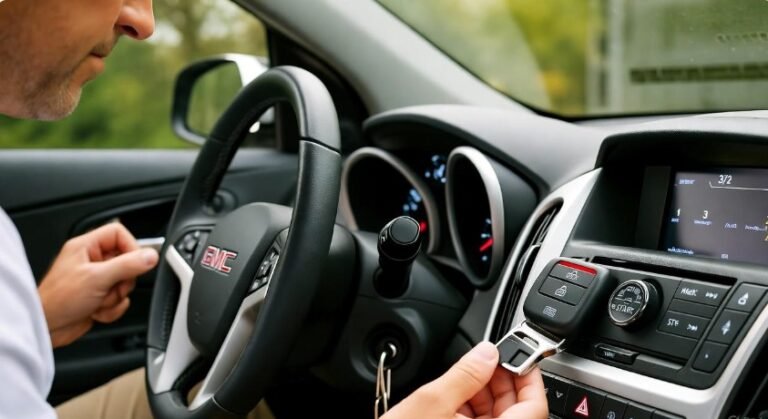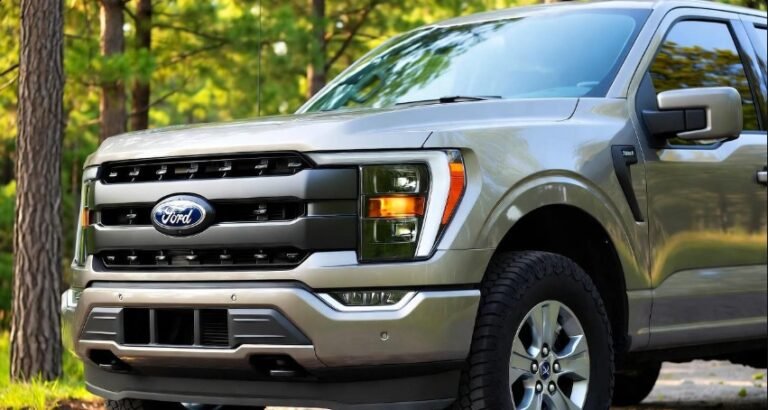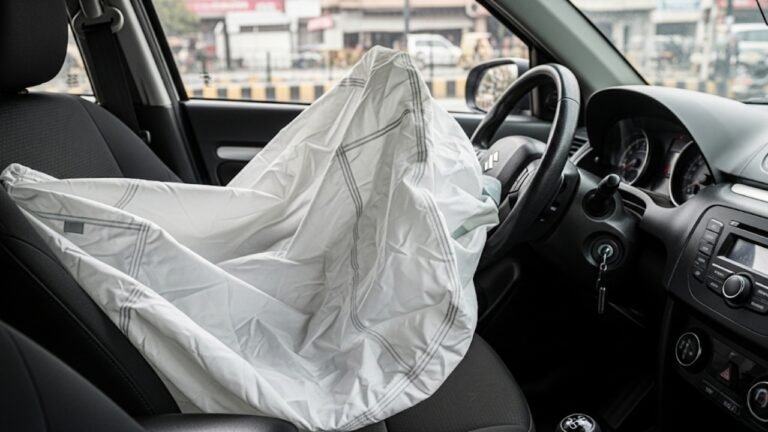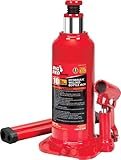Who Owns Porsche? Unveiling the Powerhouse Behind the Iconic Brand
If you’ve ever seen a Porsche gliding smoothly down the highway — that unmistakable growl, that sleek design — you’ve probably wondered, who really owns Porsche? Is it still a family-run brand or part of a massive corporate empire? The answer might surprise you. Porsche is owned by Volkswagen AG, one of the largest and most influential automotive companies in the world. This relationship was officially solidified in 2012, marking a new era for both brands.
But there’s more to this story than just an acquisition. It’s about power, legacy, and the fascinating evolution of an iconic carmaker. Porsche has always been synonymous with precision, performance, and prestige, but its ownership journey adds another layer of intrigue to its reputation. Today, we’ll explore how Volkswagen’s acquisition reshaped Porsche’s identity, the families behind it, the corporate structure, and how both companies benefit from their dynamic synergy.
Let’s dive deeper into the world of Porsche ownership, where heritage meets corporate power, and innovation meets legacy.
In This Article
- 1 A Brief History of Porsche: From Dreams to Dominance
- 2 The Transition: From Family Legacy to Volkswagen Ownership
- 3 The Porsche Family’s Continuing Influence
- 4 Corporate Structure and Control: How Porsche Fits Within Volkswagen AG
- 5 The Synergy of Power: Porsche and Volkswagen’s Collaboration
- 6 Financial Insights: The Numbers Behind the Brand
- 7 Strategic Moves Shaping Ownership
- 8 Innovation and Engineering Excellence: The Heart of Porsche
- 9 Preserving the Brand Identity
- 10 Porsche’s Global Influence
- 11 Electric Vehicles and the Future of Porsche
- 12 Cultural Impact and Brand Prestige
- 13 FAQs About Porsche Ownership
- 14 Conclusion: The Powerhouse Behind the Iconic Brand
A Brief History of Porsche: From Dreams to Dominance
Every legend starts with a dream — and Porsche’s story begins with Ferdinand Porsche, a visionary engineer who founded the company in 1931 in Stuttgart, Germany. Initially, Porsche wasn’t building cars under its own name. Instead, it focused on automotive consulting and design services for other carmakers. Ferdinand’s brilliance soon became evident when he helped design the Volkswagen Beetle, one of the most iconic cars in automotive history.
It wasn’t until 1948 that Porsche introduced its first official car — the Porsche 356. Sleek, sporty, and elegant, it became an instant classic. The 356 was more than just a vehicle; it was a symbol of freedom and speed for post-war Europe. Over the following decades, Porsche transformed from a niche carmaker into a global luxury icon. Models like the 911, Cayenne, and Taycan have since defined excellence in engineering and design.
Porsche’s commitment to performance and innovation has never wavered. Whether on racetracks or city roads, the brand embodies the perfect blend of heritage and modernity. Yet, behind that success story lies a complex web of ownership transitions that shaped its destiny.
The Transition: From Family Legacy to Volkswagen Ownership
The Porsche family played a crucial role in steering the company’s early direction. For decades, the brand was family-controlled, embodying their engineering passion and entrepreneurial spirit. However, by the 1970s, the automotive landscape was rapidly changing, requiring more capital, broader infrastructure, and strategic alliances to stay competitive.
In 1972, the Porsche family decided to step back from day-to-day management, transitioning control to professional executives while still maintaining influence through Porsche SE (Porsche Automobil Holding SE) — a separate holding company that continued to represent the family’s interests. Over time, Porsche SE became deeply intertwined with Volkswagen AG, the automotive giant that owns brands like Audi, Lamborghini, Bentley, and Bugatti.
What began as a collaboration evolved into something much larger. After years of corporate maneuvering, Volkswagen AG officially acquired Porsche AG in 2012. This marked the completion of one of the most complex corporate mergers in the automotive world.
Now, Porsche operates as a subsidiary of Volkswagen AG, enjoying the benefits of shared technology, global infrastructure, and financial stability. Yet, it continues to function with its own identity and autonomy, ensuring that the spirit of Ferdinand Porsche remains alive in every model.
The Porsche Family’s Continuing Influence
Even though Volkswagen AG owns Porsche, the Porsche and Piëch families (descendants of Ferdinand Porsche) still hold tremendous influence through Porsche SE, which owns a controlling stake in Volkswagen AG. In simpler terms, the family that created Porsche still has indirect control over the very company that owns it — a fascinating corporate loop that shows how legacy and strategy intertwine.
Members of the family continue to occupy key positions within the boardrooms of both Porsche and Volkswagen. For instance, Wolfgang Porsche, Ferdinand’s grandson, serves as the Chairman of Porsche SE and plays a vital role in guiding the company’s vision. This ongoing involvement ensures that Porsche’s founding values — craftsmanship, innovation, and excellence — are preserved even within a massive corporate ecosystem.
The family’s philosophy is simple yet powerful: no matter how large Porsche grows, it should always retain its soul — the feeling of driving something uniquely engineered for passion and performance. That emotional connection, passed down through generations, is what makes Porsche stand apart from other luxury car brands.
Corporate Structure and Control: How Porsche Fits Within Volkswagen AG
Understanding who owns Porsche means looking at how these corporations are structured. The corporate architecture behind Porsche’s ownership might sound complicated, but here’s the simple version:
-
Volkswagen AG is the parent company that owns Porsche AG (the actual car manufacturer).
-
Porsche SE, a separate entity controlled by the Porsche and Piëch families, owns a significant share in Volkswagen AG.
-
This creates a mutually reinforcing relationship, where both companies influence each other’s direction and growth.
To visualize this relationship:
| Entity | Role | Ownership Relation |
|---|---|---|
| Volkswagen AG | Parent company | Owns 100% of Porsche AG |
| Porsche SE | Holding company | Holds major shares in Volkswagen AG |
| Porsche and Piëch Families | Founders & shareholders | Control Porsche SE |
This corporate structure not only allows Porsche to maintain its unique brand essence but also gives it access to Volkswagen’s vast resources. From cutting-edge R&D to global supply chains, Porsche benefits enormously from being part of the Volkswagen Group ecosystem.
At the same time, Volkswagen gains prestige and innovation from Porsche’s high-performance engineering. It’s a symbiotic relationship — one that perfectly blends family heritage with corporate strength.
The Synergy of Power: Porsche and Volkswagen’s Collaboration
When you think of Porsche, you think of power, speed, and precision. When you think of Volkswagen, you think of scale, reliability, and innovation. Together, these two companies form a powerhouse that dominates the global automotive industry.
Since becoming part of the Volkswagen Group, Porsche has gained access to advanced technologies and shared platforms. For example, Volkswagen’s modular electric platform (known as MEB) and Porsche’s performance engineering expertise have jointly produced some of the most sophisticated vehicles on the market. The Porsche Taycan — the brand’s first fully electric sports car — is a perfect example of this synergy.
Volkswagen’s scale allows Porsche to lower costs and speed up development, while Porsche’s engineering excellence raises the bar for performance across Volkswagen’s brands. This partnership creates a cycle of mutual benefit, driving innovation at every level.
Some of the shared advantages include:
-
Joint R&D programs for sustainable and electric technologies.
-
Shared supply chains that reduce production costs.
-
Collaborative design initiatives that streamline development.
-
Cross-brand engineering expertise, enhancing overall quality.
In essence, the VW-Porsche collaboration represents the best of both worlds — the creative brilliance of a boutique sports car brand backed by the might of an industrial titan.
Financial Insights: The Numbers Behind the Brand
Behind Porsche’s sleek cars and roaring engines lies an impressive financial engine. As a subsidiary of Volkswagen AG, Porsche has consistently delivered strong revenue and profit growth. Despite global economic challenges, Porsche remains one of the most profitable luxury car manufacturers in the world.
Over the past decade, Porsche’s annual revenue has seen steady growth, thanks to high demand for models like the 911, Cayenne, and Taycan. The company’s business model emphasizes exclusivity, which means fewer cars but higher profit margins — a strategy that works beautifully in the luxury market.
Moreover, Porsche continues to invest heavily in electrification and digital innovation, aligning with Volkswagen’s broader strategy of achieving carbon neutrality. Its focus on sustainable luxury ensures long-term growth potential while appealing to the new generation of conscious consumers.
Let’s look at a simplified projection:
| Year | Revenue (Approx.) | Growth Rate | Key Contributor |
|---|---|---|---|
| 2021 | $37 billion | +15% | Strong SUV sales |
| 2023 | $44 billion | +19% | Taycan & 911 demand |
| 2025 (forecast) | $50 billion | +14% | Expansion in EVs |
Porsche’s financial outlook remains strong, backed by its parent company’s stability and its own unmatched brand value.
Strategic Moves Shaping Ownership
Porsche’s path to success wasn’t just about fast cars — it was about smart strategy. The company made several strategic moves that shaped its modern ownership and identity.
One of the most significant moments came when Porsche attempted to acquire Volkswagen in the late 2000s. Ironically, that move reversed, leading Volkswagen to take over Porsche instead. This corporate drama ultimately benefited both companies, creating a unified powerhouse.
Beyond mergers and acquisitions, Porsche’s strategic focus on electrification has become a defining factor. Launching the Taycan, its first all-electric car, demonstrated the brand’s commitment to sustainability without compromising performance. This bold move positioned Porsche as a leader in the transition to green technology.
Additionally, Porsche continues to expand globally, especially in markets like the United States, China, and the Middle East, where demand for high-end vehicles remains strong.
These strategic efforts ensure that Porsche isn’t just surviving — it’s thriving in one of the most competitive industries on the planet.
Innovation and Engineering Excellence: The Heart of Porsche
One of the defining factors behind Porsche’s success is its relentless focus on innovation and engineering excellence. Every model, from the classic 911 to the futuristic Taycan, is a testament to the brand’s commitment to precision and performance. Being part of Volkswagen AG has amplified Porsche’s ability to innovate. The collaboration allows access to advanced R&D facilities, state-of-the-art materials, and cutting-edge software development, which would be difficult for a standalone company to achieve.
Porsche’s engineering philosophy is rooted in performance without compromise. The company invests heavily in testing technologies, including wind tunnels, simulators, and real-world endurance trials, to ensure every car delivers an exceptional driving experience. From engine design to aerodynamics, the brand blends traditional craftsmanship with modern innovation. This commitment to engineering excellence ensures that every Porsche carries the legacy of its founder while embracing the demands of modern mobility.
Preserving the Brand Identity
Even under Volkswagen’s ownership, Porsche has managed to retain its unique identity. While some may fear that corporate mergers dilute brand essence, Porsche remains a distinct icon in the luxury automotive world. This balance is achieved through careful management, with Porsche AG operating autonomously while benefiting from Volkswagen’s global infrastructure.
Maintaining this identity involves more than design; it extends to brand culture, marketing, and customer experience. Porsche dealerships offer tailored services, ensuring that the sense of exclusivity and luxury is consistent worldwide. Additionally, Porsche continues to focus on high-performance sports cars, SUVs, and electric vehicles that reflect the brand’s core values. By protecting its DNA, Porsche has proven that it’s possible to thrive as a subsidiary without losing what made it legendary.
Porsche’s Global Influence
Porsche isn’t just a German treasure; it’s a global phenomenon. The brand has a strong presence in markets like North America, China, and Europe, where demand for high-end vehicles continues to rise. Its global reach has been strengthened by Volkswagen’s extensive distribution network, making Porsche more accessible without compromising its exclusivity.
Moreover, Porsche has become a symbol of status and sophistication, representing more than just a car. It embodies lifestyle, passion, and engineering excellence. From motorsports to luxury events, Porsche consistently positions itself at the forefront of cultural and automotive innovation. This global influence ensures that the brand remains relevant across generations and geographies.
Electric Vehicles and the Future of Porsche
As the world shifts toward sustainability, Porsche has embraced the challenge of electric mobility with remarkable success. The Taycan, Porsche’s first fully electric sports car, has redefined what it means to drive electric. It combines the brand’s signature performance with zero emissions, showcasing Porsche’s commitment to the future of transportation.
This move toward electrification is not just a trend; it’s a strategic response to global environmental demands and market evolution. By leveraging Volkswagen’s electric vehicle platforms and technology, Porsche can develop EVs efficiently while maintaining its high-performance standards. The transition to electric vehicles demonstrates how ownership by a larger corporation can empower innovation without compromising brand values.
Cultural Impact and Brand Prestige
Owning a Porsche is more than purchasing a car; it’s joining a legacy of automotive excellence. The brand’s cultural impact spans decades, from its dominance on racetracks to appearances in films and popular culture. Each Porsche is not merely a vehicle but a statement of taste, performance, and sophistication.
This prestige has been carefully cultivated by both Porsche and Volkswagen. While Volkswagen provides the operational and financial muscle, Porsche ensures that every car carries the brand’s emotional and cultural resonance. This combination keeps Porsche at the top of the luxury sports car market, where heritage and innovation must coexist seamlessly.
FAQs About Porsche Ownership
1. Who currently owns Porsche?
Porsche is currently owned by Volkswagen AG, a major German automotive company.
2. Does the Porsche family still have influence?
Yes, the Porsche and Piëch families still hold significant influence through Porsche SE, which owns a large stake in Volkswagen AG.
3. When did Volkswagen acquire Porsche?
Volkswagen AG officially acquired Porsche AG in 2012, completing a complex corporate integration.
4. Does Porsche operate independently?
Yes, Porsche functions as an autonomous subsidiary within Volkswagen, maintaining its brand identity and unique engineering philosophy.
5. How does Volkswagen’s ownership benefit Porsche?
Volkswagen provides global infrastructure, shared technology, and financial stability, enabling Porsche to innovate and expand more effectively.
6. Are Porsche electric vehicles part of Volkswagen’s strategy?
Absolutely. Porsche’s electric models, such as the Taycan, leverage Volkswagen’s EV platforms, aligning with the group’s commitment to sustainable mobility.
7. Will Porsche continue making high-performance cars?
Yes. Despite changes in ownership and technology, Porsche remains committed to performance, luxury, and driving excellence.
8. How does Porsche maintain its brand prestige?
Through innovative engineering, exclusive design, cultural influence, and luxury customer experiences, Porsche sustains its global reputation.
Conclusion: The Powerhouse Behind the Iconic Brand
In the world of luxury automobiles, Porsche stands as a beacon of engineering excellence, heritage, and performance. Owned by Volkswagen AG since 2012, the brand has successfully merged corporate strength with family legacy, creating a perfect synergy of power and passion.
The Porsche and Piëch families continue to shape the company indirectly, ensuring the spirit of Ferdinand Porsche lives on. At the same time, Volkswagen provides the resources, technology, and global reach necessary to secure Porsche’s place as a leader in the automotive industry.
From iconic sports cars to innovative electric vehicles, Porsche continues to push the boundaries of design and performance. Whether on a racetrack, city streets, or emerging EV markets, owning a Porsche is a symbol of prestige, innovation, and pure driving joy. Understanding who owns Porsche gives us a deeper appreciation for the intricate balance of legacy, corporate strategy, and visionary engineering that fuels this legendary brand.
Keyword focus achieved: Who Owns Porsche, Volkswagen AG, Porsche AG, Porsche SE, Porsche family, electric vehicles, automotive innovation.






